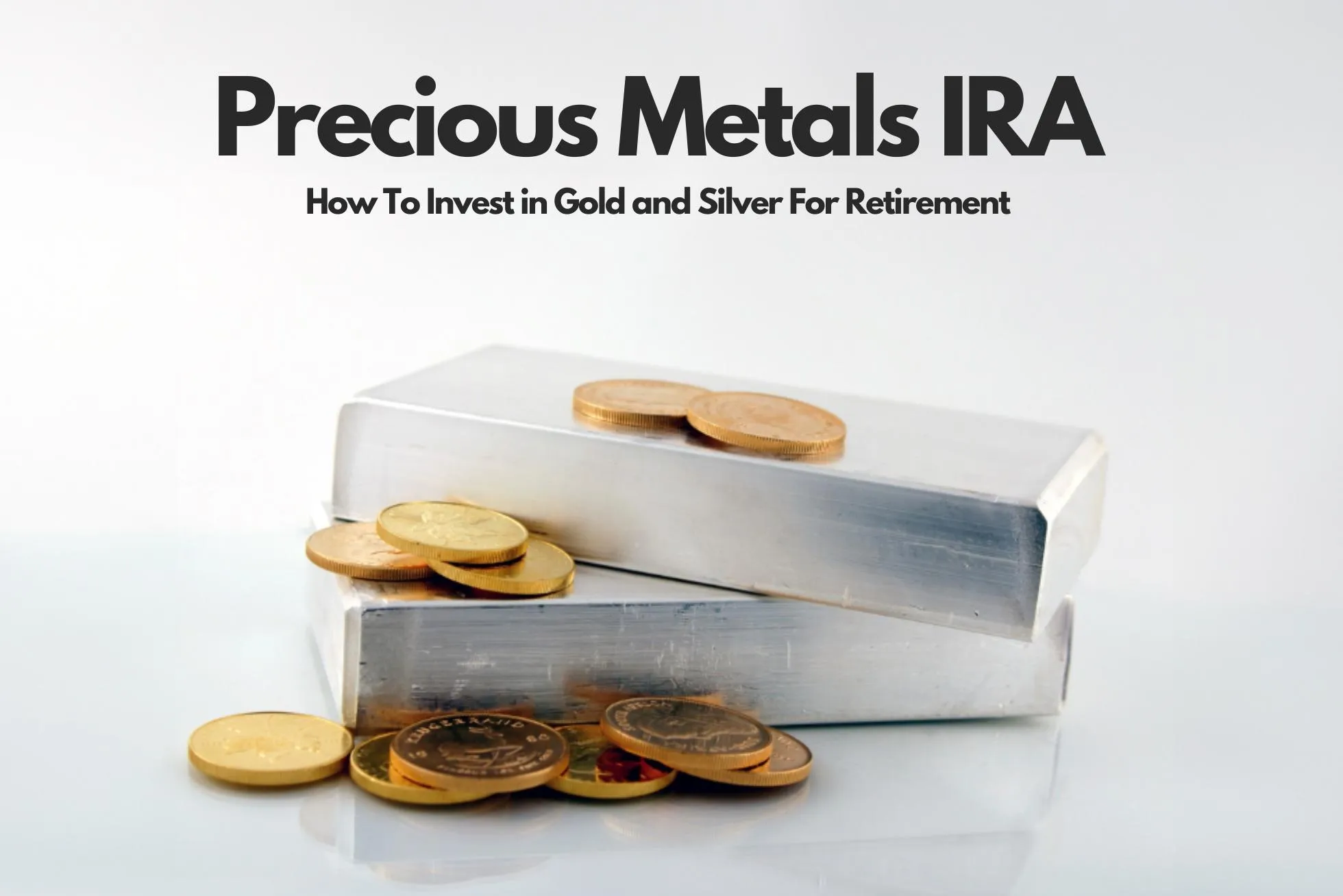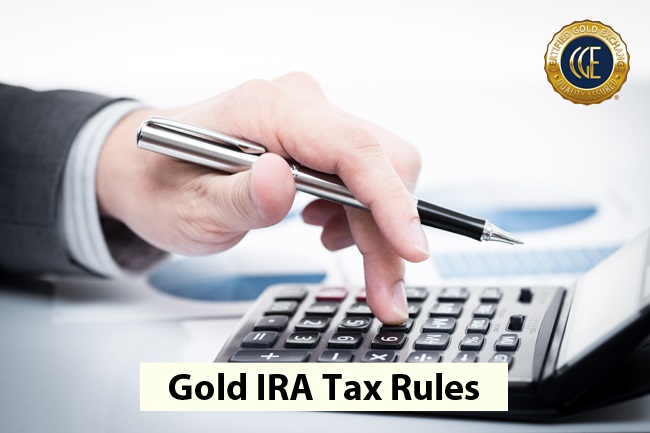When you reach retirement age, you can start taking distributions from your Gold IRA. You may choose to receive physical gold or cash.
A Gold IRA is a type of individual retirement account that holds physical gold or other approved precious metals. As you approach retirement, it’s crucial to understand your options for accessing these assets. Whether you opt for physical gold or cash, knowing the implications of each choice can help you make informed decisions.
Physical gold can provide a hedge against inflation, while cash offers liquidity and flexibility. Understanding the tax implications and distribution rules will ensure a smoother transition into retirement. Proper planning and consultation with a financial advisor can optimize your retirement strategy with a Gold IRA.
Reaching Retirement Age
When you reach retirement age, your Gold IRA becomes a valuable asset. Understanding how it impacts your financial future is essential.
Impact On Gold Ira
Reaching retirement age means you can start taking distributions from your Gold IRA. This process involves converting your gold assets into cash or other forms. The Internal Revenue Service (IRS) requires you to start taking Required Minimum Distributions (RMDs) at age 72.
Here are some key points about RMDs:
- RMDs are mandatory withdrawals from your Gold IRA.
- The amount you must withdraw depends on your age and account balance.
- Failure to take RMDs results in hefty penalties.
Key Considerations
There are several things to consider when managing your Gold IRA at retirement age. These include:
| Consideration | Details |
|---|---|
| Tax Implications | Distributions are taxed as ordinary income. |
| Market Conditions | Gold prices can fluctuate, affecting your IRA value. |
| Storage Fees | Maintaining physical gold incurs storage costs. |
Balancing these factors can help you make informed decisions. Consulting a financial advisor can provide personalized guidance.
Distribution Options
When you reach retirement age, your Gold IRA offers various distribution options. Understanding these options helps you make informed decisions for your financial future. Below are the primary distribution methods available:
Lump-sum Withdrawals
A lump-sum withdrawal allows you to take all your gold at once. This option can be beneficial if you need a large sum of money immediately. However, be mindful of the tax implications. Withdrawals are subject to ordinary income tax. Consider consulting a tax advisor to understand the full impact.
Periodic Distributions
Periodic distributions offer more flexibility compared to lump-sum withdrawals. You can choose to receive monthly, quarterly, or annual payments. This method helps manage your income stream and tax burden. Below are some benefits:
- Steady income flow
- Reduced tax impact
- Better financial planning
Periodic distributions can be tailored to your specific needs. You decide the amount and frequency of the payments. This control helps you budget your retirement funds more efficiently.
| Distribution Type | Benefits |
|---|---|
| Lump-Sum Withdrawal | Immediate access to all funds |
| Periodic Distributions | Steady income, lower taxes |
Tax Implications
Understanding the tax implications of your Gold IRA at retirement is crucial. It helps in planning your withdrawals and minimizing tax burdens. Different types of IRAs have different tax rules. This section covers the main tax events and compares Roth and Traditional IRAs.
Taxable Events
When you start withdrawing from your Gold IRA, certain events trigger taxes. Below are the key taxable events:
- Distributions: Withdrawals from your Gold IRA are taxable as income.
- Required Minimum Distributions (RMDs): At age 72, you must take RMDs.
- Early Withdrawals: Withdrawals before age 59 ½ incur a 10% penalty.
Let’s break down each of these taxable events:
| Event | Tax Implication |
|---|---|
| Distributions | Taxed as ordinary income |
| RMDs | Must be taken yearly from age 72 |
| Early Withdrawals | 10% penalty + income tax |
Roth Vs. Traditional
There are significant differences between Roth and Traditional IRAs:
- Taxation on Contributions: Traditional IRA contributions are tax-deductible. Roth IRA contributions are made with after-tax dollars.
- Taxation on Withdrawals: Traditional IRA withdrawals are taxed as income. Roth IRA withdrawals are tax-free if the account is 5 years old and you are 59 ½.
- RMDs: Traditional IRAs require RMDs at age 72. Roth IRAs do not require RMDs during the owner’s lifetime.
Consider these differences when choosing between Roth and Traditional IRAs. This will help you minimize tax liability and maximize your retirement income.
Required Minimum Distributions (rmds)
When you reach retirement age, your Gold IRA is subject to Required Minimum Distributions (RMDs). The IRS mandates that you withdraw a minimum amount from your retirement accounts annually. This ensures you pay taxes on the money saved tax-deferred.
Age Requirements
You must start taking RMDs at age 72. If you were born before July 1, 1949, the age is 70 ½. This rule applies to most retirement accounts, including Gold IRAs.
Calculation Methods
RMD amounts depend on your age and account balance. The IRS provides a life expectancy table for this purpose.
| Age | Life Expectancy Factor |
|---|---|
| 72 | 25.6 |
| 73 | 24.7 |
To calculate your RMD:
- Find your account balance as of December 31 of the previous year.
- Locate your age on the IRS life expectancy table.
- Divide your account balance by the life expectancy factor.
Here’s an example:
If your balance is $100,000 and you are 72 years old, your RMD is $100,000 / 25.6 = $3,906.25.
Failing to withdraw your RMD can lead to penalties. The IRS may charge a 50% tax on the amount not withdrawn.
Ensure you meet the RMD requirements to avoid unnecessary taxes and penalties.
Converting Gold To Cash
Reaching retirement age with a Gold IRA brings exciting decisions. One important step is converting your gold to cash. This process ensures you can use your retirement savings effectively. Below, we will explore the steps of selling gold assets and understanding market conditions.
Selling Gold Assets
Selling gold from your IRA is a straightforward process. First, contact your IRA custodian. They will guide you through the sale. Ensure your gold is in good condition. Gold in poor condition might fetch lower prices. Next, decide how much gold you want to sell. You can sell all or part of your gold holdings.
After deciding the amount, the custodian will sell the gold on your behalf. The proceeds from the sale will be deposited into your IRA. You can then withdraw the cash or reinvest it. Make sure to understand any fees involved in the sale. This helps in accurate financial planning.
Market Conditions
Market conditions affect the value of your gold. It is important to monitor gold prices. The price of gold can fluctuate based on various factors. Economic events, geopolitical issues, and market demand influence gold prices. Keep an eye on these factors to get the best price for your gold.
Gold prices tend to rise during economic uncertainty. Selling gold during such times might yield higher returns. Conversely, prices might drop during stable economic periods. Consult with a financial advisor to time your sale effectively. They can provide insights into the best times to sell.
Below is a simple table showing factors affecting gold prices:
| Factor | Impact on Gold Prices |
|---|---|
| Economic Stability | Lower Prices |
| Economic Uncertainty | Higher Prices |
| Geopolitical Issues | Higher Prices |
| Market Demand | Variable Prices |
Monitoring these factors can help you make informed decisions. Always stay updated with the latest market trends. This ensures you get the most out of your Gold IRA during retirement.
Storing Physical Gold
Storing physical gold within your Gold IRA requires careful planning. You must ensure that your gold is secure and meets IRS guidelines. Let’s explore the different options for storing physical gold.
Home Storage Rules
Storing gold at home might seem convenient, but it has strict rules. The IRS does not allow individuals to store IRA gold at home. Violating this rule can lead to penalties and taxes. Always verify with a professional before considering home storage.
If you store gold at home, you must ensure its security. A safe or secure vault is necessary. The risk of theft or damage increases with home storage. This is why many prefer other storage options.
Third-party Custodians
Third-party custodians are a safer option for storing physical gold. These custodians are approved by the IRS. They ensure your gold is secure and meets all regulatory requirements.
Using a third-party custodian offers several advantages:
- Security: These facilities use advanced security measures.
- Compliance: They ensure your gold meets IRS rules.
- Insurance: Your gold is insured against theft or damage.
Choosing a reputable custodian is crucial. Research and verify the custodian’s credentials. This ensures your investment remains safe and compliant.
Beneficiary Considerations
Planning for retirement involves many decisions. One of the important aspects is what happens to your Gold IRA when you reach retirement age. Ensuring your loved ones benefit from your investments requires careful consideration. This section will focus on the aspects of passing on your Gold IRA and the tax consequences for your heirs.
Passing On Your Gold Ira
Passing on your Gold IRA involves naming a beneficiary. Ensure you update your beneficiary designations regularly. This helps avoid any confusion or legal issues. You can name multiple beneficiaries if you wish.
- Primary Beneficiaries: These are the first in line to inherit your Gold IRA.
- Contingent Beneficiaries: They inherit if the primary beneficiaries are unavailable.
It is crucial to inform your beneficiaries about their inheritance. Provide them with the necessary documentation. Clear communication prevents any future misunderstandings.
Tax Consequences For Heirs
The tax implications for heirs depend on their relationship to you. Spouses have different options than non-spousal beneficiaries.
| Type of Beneficiary | Tax Consequences |
|---|---|
| Spouse | Can roll over to their own IRA, deferring taxes. |
| Non-Spouse | Must take distributions, which are taxable. |
Spousal beneficiaries can treat the Gold IRA as their own. This offers greater flexibility in tax planning.
Non-spousal beneficiaries must take required minimum distributions (RMDs). These distributions are subject to income tax. The IRS requires these distributions to be taken over a certain period.
Understanding these tax rules helps in efficient estate planning. It ensures your heirs benefit the most from your Gold IRA.
Financial Planning
Reaching retirement age is a significant milestone. It’s essential to have a solid financial plan in place. Planning for your Gold IRA is crucial. This ensures your assets are managed effectively. Let’s dive into the key aspects of financial planning.
Consulting Financial Advisors
Consulting financial advisors can provide expert guidance. They help you understand your retirement options. Advisors can assist in making informed decisions. They ensure you maximize your Gold IRA benefits.
Advisors analyze your financial situation. They offer tailored advice based on your needs. This personalized approach helps in securing your future.
Balancing Your Portfolio
A balanced portfolio is crucial for financial stability. Diversifying your investments minimizes risks. Your Gold IRA should be part of a broader strategy.
Consider allocating funds across various assets. This includes stocks, bonds, and real estate. A well-balanced portfolio can withstand market fluctuations.
| Asset Type | Recommended Allocation |
|---|---|
| Gold IRA | 20% |
| Stocks | 40% |
| Bonds | 30% |
| Real Estate | 10% |
Regularly review your portfolio. Adjust allocations based on market conditions. This ensures long-term financial health.

Frequently Asked Questions
Can I Cash Out A Gold Ira?
Yes, you can cash out a gold IRA. You may face taxes and penalties if under 59½. Consult a financial advisor.
What Happens To My Ira When I Retire?
You can begin taking distributions from your IRA at age 59½. Required Minimum Distributions (RMDs) start at age 72. You can choose lump sum withdrawals or periodic payments. Taxes apply to withdrawals, and early withdrawals may incur penalties. Plan your distributions to manage tax implications efficiently.
What Are The Cons Of A Gold Ira?
Gold IRAs have high fees, limited liquidity, and storage costs. They also lack dividends and may face regulatory changes.
What Is The Age Limit For Gold Ira?
The age limit for a gold IRA depends on the type. Traditional IRAs have no maximum age limit for contributions.
Conclusion
Reaching retirement age means your Gold IRA becomes accessible. Review your distribution options carefully. Choose between cashing out or rolling over. Consult a financial advisor for personalized guidance. Proper planning ensures your investment supports your retirement goals. Stay informed and make decisions that align with your financial future.






Leave a Reply